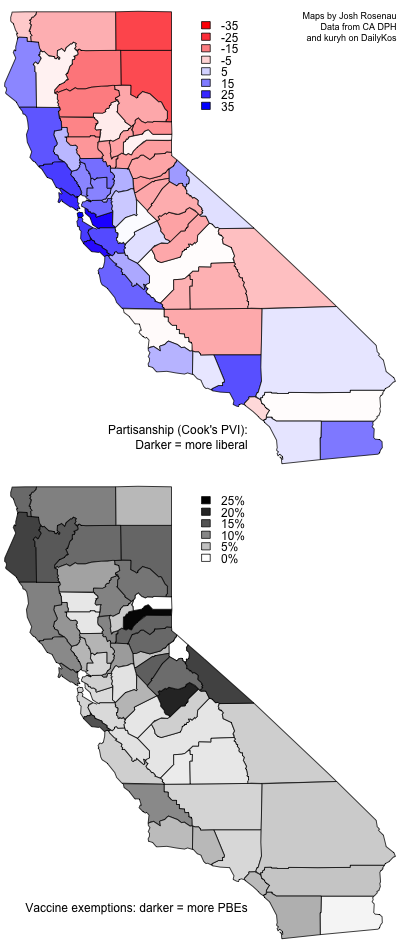Were you lying all the time? Was it just a game to you?
But I’m in so deep. You know I’m such a fool for you.
You got me wrapped around your finger, ah, ha, ha.
Do you have to let it linger? Do you have to, do you have to,
Do you have to let it linger?—The Cranberries, “Linger” from the album Everybody Else Is Doing It, So Why Can’t We?
Listening to a radio discussion earlier this week, I heard an archetypical example of a common dodge in discussions of climate change denial, one I find particularly frustrating because everything about it is factually and logically flawed. This “everybody does it” approach is common among climate change deniers and creationists, but too often people simply accept the premise, thus missing a chance at a deeper and more thoughtful discussion of science and how people confront contentious topics.
A caller on KQED’s Forum with Michael Krasny asked Bill Whalen, a fellow at the conservative Hoover Institution: “What do you think it says about the Republican field that so many candidates lack a basic understanding of reality and of science in terms of global warming?”
Whalen started by simply trying to change the subject, saying: “I would disagree with your caricature of the Republicans. They’re just skeptical of the extent to which climate change is talked about, plain and simple. By the way, a caller a couple minutes ago asked…” and then switched to a different topic.
Host Michael Krasny wouldn’t let the matter drop so quickly:
Krasny: “Bill Whalen, all due respect, there are a number of Republicans who have essentially dissed or dismissed climate change and particularly global warming.”
Whalen: “Well, Michael, name those who flat out dismissed it.”
Krasny: “Well, it depends, I suppose, how you define ‘dismissal.’”
Whalen: “This is the problem, not all of them dismiss it.”
Krasny: “There’s a lot of doubt about the science that’s come from them.”
Whalen: “Well there you go, they’re doubtful, that’s a difference from dismissing it.”
Krasny: “But it’s more on the GOP side is it not, than on the Democratic side?”
Whalen: “Yeah, that’s their take, just as we can look on the Democratic side and, for example vaccines, look at the vaccine debate we’ve had in California. Is that a conservative problem or a liberal problem? That’s a liberal problem in California.”
 Sadly, no!
Sadly, no!
Here’s the thing. Liberals are not more anti-vaccine than conservatives.
I can hear you all insisting, “nononono, hippie liberals in Marin County and the wine country and San Francisco are opting their kids out of life-saving vaccinations, and that’s why measles and pertussis are killing kids! Don’t let liberals off the hook!”
But let’s put that to the test. Here’s a map of California counties colored based on a standard metric of political partisanship (Cook’s PVI looks at how much greater the Democratic voteshare was than the national average in the last two presidential elections). I mapped personal belief exemptions among kindergartners, too. PBEs are the mechanism by which Californians use religious or pseudoscientific reasons to opt their kids out of having these life-saving immunizations.
I don’t see much correlation there, and indeed, running a correlation analysis finds that counties with greater Republican voteshare had a higher rate of vaccine refusal. That’s true even if we weight the analysis by the number of students enrolled. Famously conservative Orange County has a higher rate of personal belief exemptions than the famously liberal City and County of San Francisco. It’s just not the case that vaccination is “a liberal problem in California.”
We can dig deeper, doing a regression analysis to factor out other demographic factors and focus only on the role of partisanship. I pulled in some other demographic variables from the US Census, including fraction of the population with a college degree (which is a proxy for socioeconomic class as well as a measure of education), fraction of the population that was born abroad and is not a naturalized citizen (on the assumption that undocumented immigrants may be seeking to avoid generating a paper trail, even by visiting free vaccine clinics), fraction of the population that does not speak English at home, and the fraction of the population without insurance (there are programs to give free vaccines to everyone, but not all people know about them). (Nerds: I did this as a quasibinomial regression to allow for overdispersion, weighting by student population size to account for the large difference in student populations.)
In that regression, the percentage of uninsured, the percentage who don’t speak English at home, and the percentage with a college degree were all statistically significant, while the percentage born abroad and not naturalized was not. Neither was partisanship (and what effect there was continued to show more exemptions in more conservative counties). Again, vaccine denial is not “a liberal problem in California.”
That result doesn’t surprise me, because for years I’ve been pointing out that polling data make it clear that anti-vaccination attitudes are not a partisan phenomenon. Indeed, as that link shows, polls show that people who are anti-vaccine are more likely to deny climate science and evolution, too.
So it just isn’t so that everybody else does it. But in any case, nobody’s partisan affiliation ought to exempt them from criticism when they engage in science denial.

